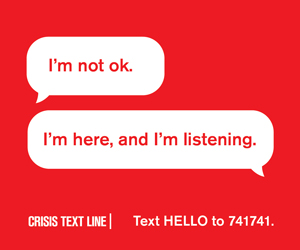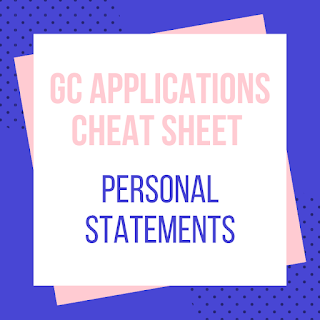Empathy Warrior: How I Got Counseling Experience
So, you're interested in being a Genetic Counselor?
Counseling is half the job! One of the very first things you will notice when you start to seriously look into genetic counseling programs, is that many of them describe competitive applicants as those who have some kind of counseling experience.
Here are some excerpts from various program admission requirements regarding their counseling experience recommendations:
The Program Formerly Known as CSU Stanislaus:
"At least six months experience in a volunteer or work related position that involves counseling, e.g. working in a crisis intervention center, student health center, family planning clinic, or serving as a resident advisor or peer counselor."
Sarah Lawrence:
"While working on a crisis hotline is great preparation for genetic counseling, it is not the only way to obtain counseling/advocacy experience.The setting and your role within the setting both contribute to gaining interpersonal and counseling skills. For example, if you volunteer with Planned Parenthood, a role in which you take histories or provide support to patients would better prepare you than a role answering phones. Other options include hospice work, working with families affected by disability, or being a patient liaison. In addition to gaining counseling experience, working one-on-one with individuals dealing with a medical situation or other difficultly provides applicants with important insight and exposure to working in a helping profession such as genetic counseling."
University of California, Irvine:
"Many successful applicants have had volunteer experiences that involve counseling, such as being a resident advisor or peer counselor in college, working on a crisis telephone hotline or helping disabled individuals."
So, what did I do to get counseling experience?
The first thing I did was start volunteering with Crisis Text Line. The wonderful thing about CTL is how flexible their volunteering schedule is. As an entirely text message based crisis counseling service, you can volunteer whenever works best for you! Plus, you can pretty much volunteer from the comfort of your sweatpants! They have an incredibly detailed training program that really prepares you to support texters, and their supervisors and staff are super friendly and supportive. And because you are able to communicate with texters from all across the country, you are able to gain experience helping people of all different ages and backgrounds who are going through a wide variety of crises.
The second thing I did was get Mental Health First Aid certified. Just like getting First Aid or CPR certified, you can take a course to get certified in providing Mental Health First Aid. This 8 hour (in total) class gives you the tools to recognize someone in a mental health crisis, and the tools to help them get the help that they need. This class does cost money, but you receive a certificate of completion as well as a book with the information you cover in the course, and more! I heard from a few of my classmates that you can find mental health first aid classes for free, you just might have to do a bit more digging. What I loved about this class was that it brought the skills that I had learned in CTL into the real world, and really gave me the confidence to apply everything I learned in real world situations.
Both of these experiences really taught me to be an Empathy Warrior, as CTL calls it! They've also given me the tools to take better care of my own mental health and be a more empathetic and supportive friend. Even if you aren't looking to gain counseling experience for an application, getting counseling experience can be a rewarding way of putting some good into the world, and you'll definitely getting some of that good back.




Comments
Post a Comment